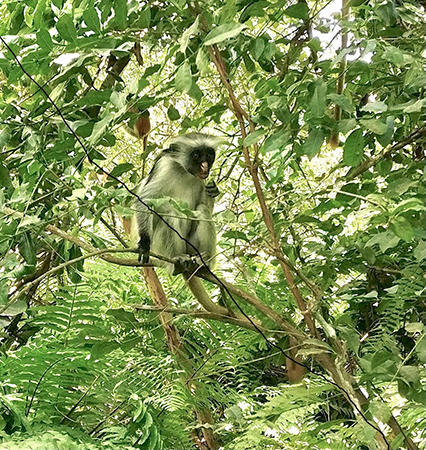A new study by researchers at Kyoto University proposes a hypothesis that species expanding to novel, underexploited habitats is an important force in the evolution of social behaviour, calling it the founder sociality hypothesis. Beyond the founder effect well known to evolutionary biologists, which highlights the random genetic bias that may occur with a small founder population, the new hypothesis focuses on the social changes associated with establishing a population in a new habitat. They suggest that as populations expand into new habitats, where there is initially an abundance of resources and no clear territories or established groups, the individuals best at meeting strangers and taking advantage of the new resources without fighting will be the most successful. As a result of this altered initial social dynamic, the next generation then will adapt not only to the environment and ecology of the new habitat, but also their ability to fit into this new social dynamic. Over time, this can lead to large social differences between the parent population and the new founder populations.
In the study they focus on three species they suggest to have experienced these effects: dogs, bonobos, and Zanzibar red colobus monkeys. They identify similarities in social dynamics between each species, and how they differ from their evolutionary relatives, suggesting that these differences may be due to their history of habitat expansion. They note how each species has more overlapping territories, different bonding structures, and high social tolerance compared to their closest relatives as predicted by the founder sociality hypothesis. Early dogs expanded into human settlements and took advantage of the food resources from humans, the ancestors of bonobos crossed the Congo River at a low point into a habitat without direct competitors, and a population of Zanzibar red colobus monkeys moved into spice farms separated from their original forest habitat with new feeding resources available. As each crossed into the newly available habitats, the social dynamics of establishing a new population could lead to long-lasting changes.
They then discuss if early human species might have experienced similar evolutionary forces, and propose tests of modern species that may experience the same effects as they expand into new environments such as coyotes in North America and island populations. They conclude by encouraging future studies and calling placing the founder sociality hypothesis in the framework of calls for an extended evolutionary synthesis. Habitat expansion, and the social challenges that come with it, may be a key part of the evolution of social behaviour, in other and perhaps even our own species.







